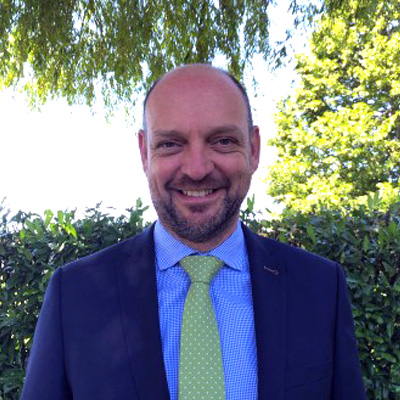Food Systems Podcast 76
Focusing on financing the transition: Insights from the Forum’s Annual Conference 2025 with Felipe Ortega Schlingmann
Thursday, Aug 14, 2025
In this edition of the Food Systems Podcast, recorded at the Forum’s Annual Conference 2025, Alex Turk talks to Felipe Ortega Schlingmann from the European Investment Bank (EIB) about Financing the Transition in agriculture.

Here is a summary of the conversation.
Felipe, you’ve just been on a panel at the Forum looking at Financing the Transition. What was your most important message?
It’s that the EIB aligns with EU policies. While the EU has long supported farming, things have gone off track recently, with farmers and environmentalists unhappy. There has been a dialogue involving many stakeholders, and out of that came a balanced vision for agriculture’s future with a number of objectives. The EIB, as the EU bank owned by 27 Member States, is ready to support the sector – as we have done for many years, providing an average of €5 billion in financing. What needs to be done is complex, in essence, it’s aligning public and private sectors to deliver sustainable and competitive agriculture.
The EIB has a crucial role in easing private investment. Where is your focus directed at the moment?
Last year, our management began a new cycle with refreshed objectives. Beyond promoting small enterprises, innovation, and sustainable energy, our new strategic roadmap prioritizes agriculture and the economy. We aim to be more effective in addressing market failures and financing gaps. There are several steps to this. We’ll continue providing liquidity to farmers and agribusinesses, but also complement this with tools for adaptation finance and reinforced insurance schemes. We’re collaborating with the public sector to use guarantee schemes to focus investments on generational renewal, profitability, innovation, and enabling infrastructure.
What do you think is the biggest obstacle to getting that done, especially regarding generational succession and making farming attractive? Can you pinpoint any areas of concern, and did you hear those concerns in the Forum today?
Yes, there’s a general issue with not only environmental sustainability but also, increasingly, the economic and social sustainability of farming. You can’t promote a green transition in the food system without farmers to implement it. The farming population is aging, and if the attractiveness of rural areas isn’t addressed, it’s a complex problem. From the bank’s perspective, we finance enabling infrastructure, like irrigation schemes or modernization of irrigation schemes in rural areas, and we also need these schemes for good living in small towns. There’s also the need to value what farmers do beyond just producing food, like their role as environmental custodians, which needs to be simplified and streamlined to create a market and business case.
Looking at the green transition as a business opportunity, what moves the dial now? What’s your message as a call to action?
My message is to advocate for a holistic approach to sustainability in farming, starting with profitability and social sustainability in rural areas to make them attractive again, linking this to sustainable farming within planetary boundaries. This is not easy and requires significant finance. We need to focus on traditional aggregation means and financial outreach, complemented by smart, innovative finance mechanisms that blend public and private funds. This is to pursue objectives that are difficult to achieve due to market failures or weaknesses, or initial deployment issues, bridging the investment gap. This is where the EIB, as a public bank, sees its role.
You can watch or listen to this podcast on the Website, iTunes, Spotify or Podbean.

Felipe Ortega Schlingmann
Felipe Ortega Schlingmann is Head of the Bioeconomy Division within the Projects Directorate of the European Investment...see more
